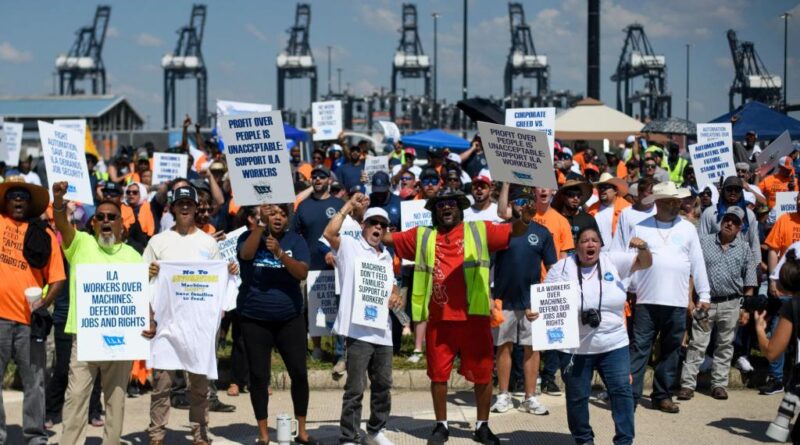Biden’s resolution to end port strike is not in our best interest

President Biden’s top aides intervened to prevent a potential Christmas season crisis of empty shelves and higher prices caused by a dockworkers’ strike.
The White House claims credit for ending the three-day walkout, but the deal negotiated by Biden could have long-term negative effects on prices and organized labor.
When the 50,000-strong International Longshoremen’s Association went on strike, they demanded a 77% raise over six years and a freeze on automation. The ports offered a 50% wage increase and more flexibility on automation. Biden’s deal for a 62% raise was achieved through coercion.
The forced deal could lead to an increase in wages to $63 per hour, creating uncertainty about future concessions like automation. Biden could have used the Taft-Hartley Act to suspend the strike for fair negotiations, but chose not to, eroding a law that protects unions.
The administration believes it will receive political credit for averting supply chain disruptions and supporting workers, but favoring the ILA with its controversial history may not be a positive example of worker advocacy.
Unions like the ILA lost public support in the past due to unchecked power, and most people prefer fair negotiations without resorting to hostage-taking tactics.
Contributing Editor Nicole Gelinas provides this commentary for the Manhattan Institute’s City Journal.



